BEYOND Tomorrow U.S. Summer Program 2016
~Jiro Murase Memorial Scholarship Project~
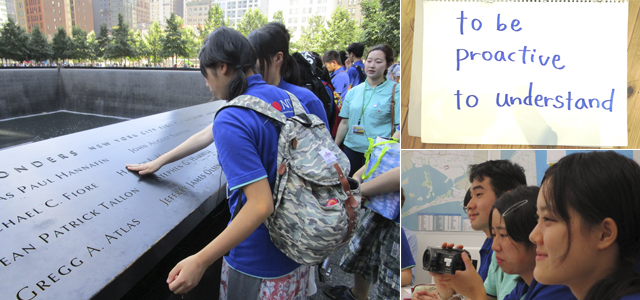
Overview
Selected students from all over Japan that may not be privileged with global exposure in their given circumstances but possess strong aspirations to become leaders with a global outlook participated the program and visited Boston, Washington D.C. and New York. The students visited organizations and individuals working to make a difference in society and learned about the American way of social change -making. The students also served as ambassadors of Japan to the American people by engaging in exchange activities in the three cities.
In Memory of the late Jiro Murase, who made exceptional contributions to U.S.-Japan relations, the project was undertaken as the “Jiro Murase Memorial Scholarship” with the generous support of the United States-Japan Foundation and the Japan Society Jiro Murase Memorial Fund including the donation by the Murase Family. Through the project, young people were offered opportunities to gain experience in the United States, meet American people, learn about American society, and one day become leaders in the U.S.-Japan relations.
Dates
July 30 – Orientation in Tokyo
July 31 to August 12 – Program in the U.S.(Boston, Washington D.C. and New York)
Participants
14 university and high school students
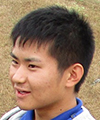 |
Kotaro Azuma Ichijo High School, Nara City Kotaro visited the Nishinari District in Osaka when he was in ninth grade. Seeing people living in the park, selling things on the street, he was speechless, overcome with emotions. It was at that moment that he realized he wanted to become someone who is thoughtful and cares deeply for others, and towards that goal, he applied to join BEYOND Tomorrow, where he knew he could work together with peers and explore the unknown. An avid reader, Kotaro has been inspired by the stories he has read and longs to be an author in the future. His dream is to use his own words to share with as many people as possible the realities of the world, like the one he experienced during his visit to Nishinari District. |
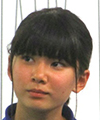 |
Minako Arakawa Ueda High School, Nagano Prefecture Minako lived in an orphanage since she was 7 years old. Thanks to the adults and mentors around her, she grew up in an environment that was rich in life, and from that experience, she is now inspired to also eventually work as a safety net for others who are not able to support themselves on their own. In joining BEYOND Tomorrow, she will have the opportunity to meet peers who have also had unusual experiences growing up, and in this environment, she is excited to keep learning about how to be someone who can care for others. Minako has a deep interest in global affairs, and is currently doing research in the Ebola virus and Sustainable Development Goals (SDGs). |
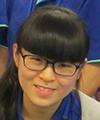 |
Yukie Ishii Miura Gakuen High School After befriending an exchange student from Indonesia, Yukie was saddened by the prejudice that Muslims face today. If it becomes commonplace to believe biased information, anyone could become a target of prejudice. Realizing this, Yukie understood the importance of not taking information for face value; it is crucial to learn how to make a decision by thinking from different perspectives. She is looking forward to learn to look at things from a new, outside perspective by joining BEYOND Tomorrow. In the future, she is hoping to study space engineering and figure out a way to convert resources in outer space to energy in order to support sustainability on earth. |
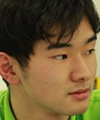 |
Masayuki Endo Faculty of Engineering, The University of Tokyo (Graduate of Aizu Gakuho High School) Through his participation in BEYOND Tomorrow, Masayuki felt the impact of seeing his peers, who were the same age as him, live their lives boldly even when they had lost family, friends, their homes, and the places they had always lived, as though it was a blow to the head. He struggled with his role as someone who did not suffer from the disaster and desperately considered what he could offer from such a position. In the end he came to the conclusion that it was precisely because he hadn’t suffered from the disaster that he wanted to play a role in providing support. He participates in BEYOND Tomorrow’s activities with the aim of growing as a person in a global environment, as he works towards his dream of addressing regional inequalities by using information technology. |
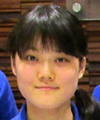 |
Tomoyo Kobayashi Kasugaoka High School, Osaka Prefecture Tomoyo visited the affected areas of the Great East Japan earthquake as a high schooler, when she joined a volunteer aid group. Her group raised some of the levees, but when she looked across the desolate area, she realized that the recovery efforts were much slower than she had expected, and she understood the importance of physically seeing a place for herself. Through BEYOND Tomorrow, she is looking forward to meeting peers with differing opinions, debating them, discovering new perspectives she had never thought of, and gaining the strength to think through problems. Tomoyo has an interest in art and fashion, and as such, she is hoping to help others in need through a creative approach. |
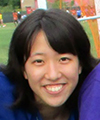 |
Anju Shimoyama Engei High School, Tokyo Prefecture Watch her single mom make a lot of sacrifices growing up, Anju felt compelled to hold back from a lot of the things she wanted to do. When she heard about BEYOND Tomorrow, she instantly felt that the organization was truly dedicated to acknowledging and supporting its students, and seeing this, Anju was inspired to work towards helping others who may struggle in places that people do not see or realize. Always shying away from challenges because she lacked the confidence to face them, she finally decided to break from her shell and apply to BEYOND Tomorrow. She is hoping that this challenge will lead her to landscapes and scenery that she has never experienced before. |
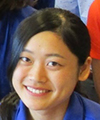 |
Akiha Suda Tanegashima Chuo High School, Kagoshima Prefecture When Akiha first joined BEYOND Tomorrow as a tenth grader, she painfully realized just how small her world view was having grown up on the remote island of Tanegashima, and she vowed to learn more about Japan and the world, expanding her perspectives. She is hoping that, through the Fellows Program, she will be able to think and debate with her peers, and by going through the experience of creating something together, that her life will be changed. In the future, she would like to work to care for others, after pursuing studies in history or foreign languages. |
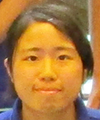 |
Kumi Takahashi Hanamaki Agricultural High School, Iwate Prefecture Kumi first became interested in tackling the issue of street children and Rwanda’s genocide when she joined an international project in ninth grade, where she developed ideas for agricultural development suited for Rwanda’s climate and land. In the future, she would like to work in the film advertisement industry and also be involved in agricultural development in third-world countries. Kumi has battled illness since childhood, and now, she believes that she was made to struggle so that she can empathize more closely with others who also struggle in the same way. She would also like to support her mother, who has been there every step of the way through her illness. |
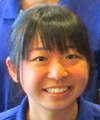 |
Hina Tabuchi Hokuriku High School Having spent over ten years as a girl scout, Hina is now determined to tackle social issues surrounding poverty, discrimination, and human rights. Hina also has a younger sister with a learning disability, and she has taught her the importance of realizing a society where those with disabilities and those with abilities feel that they equally belong. She applied to the Fellows Program in hopes of expanding her global views by engaging in discussions with peers. Her dream is to become a registered dietician and contribute to society through food. |
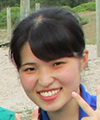 |
Seika Nakagawa Uto High School, Kumamoto Prefecture When she was in middle school, Seika lost her father, who had been disabled from an accident. She has always been very proud of her father, who lived life to the fullest despite his disabilities, and in remembering him, Seika feels that her calling is what her father is urging her to do: Create a world where disabled people can also shine. She thus decided to pursue a career in special education. She also has experience in public speaking at the Kyushu (regional) round of an English speech competition, where she spoke about her memories of her father. Her future goal is to study special education and become a teacher at a deaf school. She would also like to improve her American Sign Language and work abroad. |
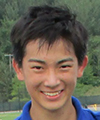 |
Kouki Nabuchi Singu High School, Wakayama Prefecture Kouki lost some of his friends to Tropical Storm Talas that swept through the Kii Peninsula in September, 2011. At first, he felt unqualified to speak about the damage and experience of floods having not been a direct victim of the flooding himself. But when he joined BEYOND Tomorrow, a college-aged participant told him, “It doesn’t make any sense in trying to compare someone’s experience and pain with another person’s. They are all equally meaningful and important.” These words echoed strongly within Kouki’s heart, and since then he has been vocal about the damage that his town experienced from the flooding. His dream is to study machine engineering so that he can work on developing Eco-cars and help prevent further global warming. He wants to tackle global issues and help others. |
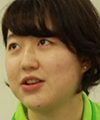 |
Hayoung Paik Faculty of Letters, Tohoku University (Graduate of Fukushima Prefectural Aizu Gakuho High School) After the disaster in Tohoku, Hayoung started to think about what she could contribute, and came to think that she would like to develop her leadership skills, imagination, and ability to express herself as someone with roots in both Korea and Japan, so that she can become the kind of person who can give back to society. Her dream is to become a teacher working with children in difficult socio-economic circumstances in Africa and Asia. Through her time with BEYOND Tomorrow, she was inspired by the presence of the people who were just there, around her. Moving forward, she is looking to not just passively take in the opportunities she is offered, but also to proactively pursue them. |
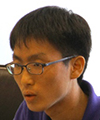 |
Kaito Marukawa Hiroshima High School, Hiroshima Prefecture Kaito grew up in a rural area where there were only ten students in his lower and middle school. He witnessed the challenges that these rural, mountainous areas face. When he joined BEYOND Tomorrow as a ninth grader, he was deeply inspired by the lively discussion he had with his peers that gathered from all across the country, as well as with the leaders who work in areas across the world. Through these experiences of meeting peers from throughout Japan and the world, Kaito hopes to gain a more multidimensional perspective on his local region’s issues and hold a further appreciation of their complexity, so that he can bring this back to his home prefecture of Hiroshima. In the future, he wants to contribute to education and cultivation of talent by working in a school or education administration setting. |
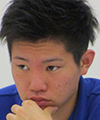 |
Yuki Yakabi National Institute of Technology, Okinawa College Yuki grew up in an island of 500 people off the south east short of Okinawa’s main island. As his home island was without a high school, he had to leave his home when he entered high school. When he graduates high school, he would like to study abroad in Germany, so that he can serve as a bridge between Japan and Europe in industry. He is excited to join the Fellows Program because he is looking forward to working with peers with differing opinions, expanding his personal connections, and debating with those who work in many different fields, so that he can learn more about what motivates these people and how they think. |
Program
Orientation
Prior to the departure for the U.S., students attended the orientation program in Tokyo. During the orientation, the students thought about the meaning for visiting the United States and received words of encouragement by the supporters.
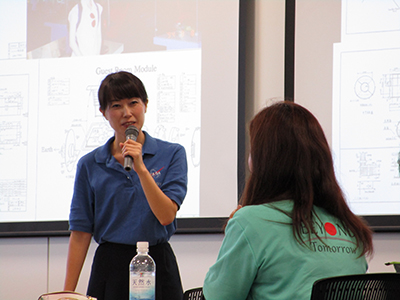
Orientation session with Ms. Naoko Yamazaki, astronaut
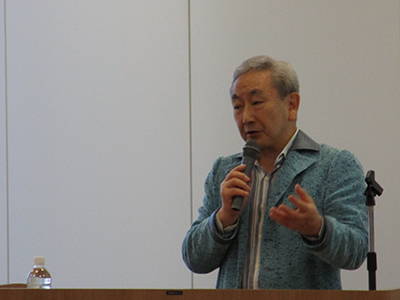
Message from Daijiro Hashimoto, chairman, Global Fund for Education Assistance | BEYOND Tomorrow
Program in the U.S.
During the 12-day program in the U.S., the participants visited Boston, Washington D.C., and New York, and interacted with leaders representing various fields. Through such opportunities, the students envisioned their future roles to make a difference in society, and thought about their career plans with broad perspectives. At the end of the program, they made a presentation about how Japan could be more tolerant toward cultural and ethnic diversity and how one could contribute to it.
Boston
Students visited the world’s leading higher educational institutions and examined how they developed leadership among students by incorporating cultural diversity.
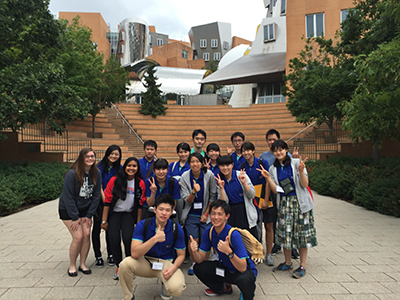
Visit to Massachusetts Institute of Technology
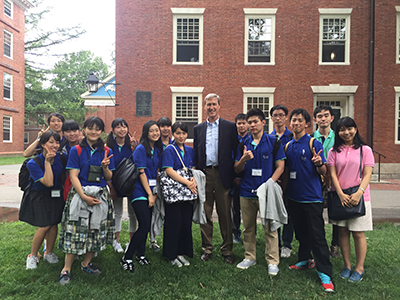
Visit to Harvard University
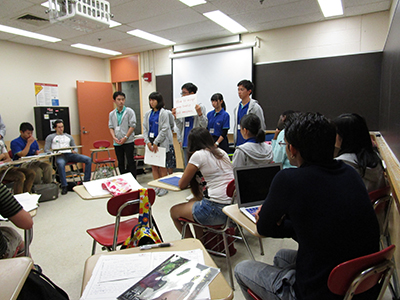
Students gave a presentation about the issue of diversity in Japan at University of Massachusetts Boston
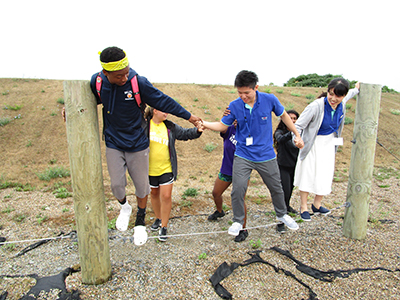
Cultural exchange with local high school students from the Boys and Girls Club of Boston
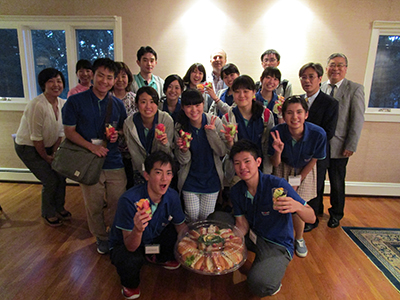
Special dinner at Reischauer House
Washington D.C.
Students visited the White House and the Congress etc. in Washington D.C and developed the understanding about how the voices of people in the U.S. and the world were better represented in both domestic and international policy-making.
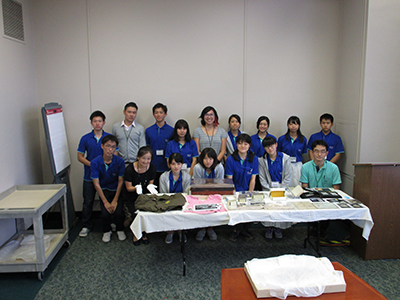
Visit to the National Museum of American History to learn about the history of Japanese Americans
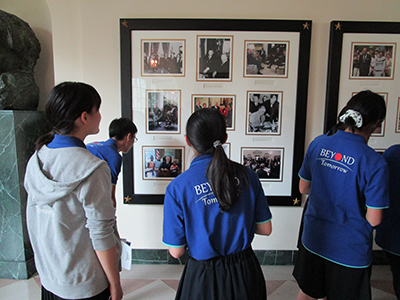
Students joined a tour to the White House
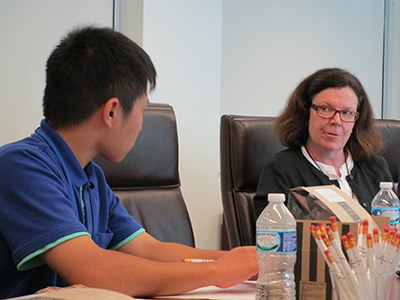
Visit to the Council on Foreign Relations and session with Ms. Sheila A. Smith, senior fellow for Japan studies
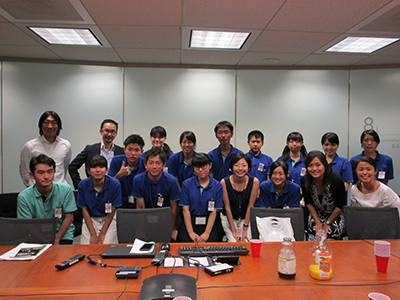
Discussion on global career with Japanese professionals working at the World Bank group
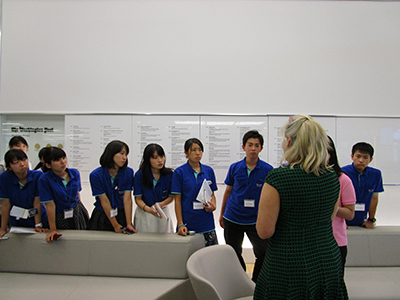
Visit to Washington Post to observe behind the scenes at one of the leading daily newspapers in the U.S.
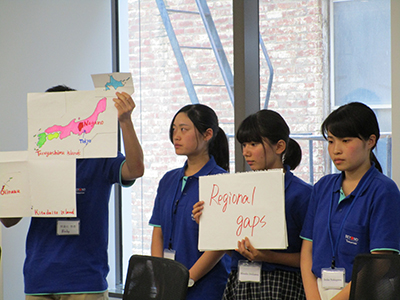
Visit to Keidanren USA and session with representatives from Japanese companies
New York
In New York, students visited various groups and individuals active in the field of passing down stories and creating values, and learned the models of fostering tolerance and respect for diversity. They made presentations on what they had learned for leaders in US-Japan relations.
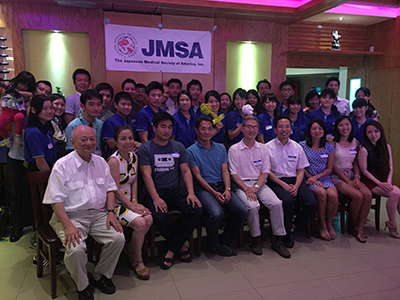
Attended the summer party with medical professionals in NY
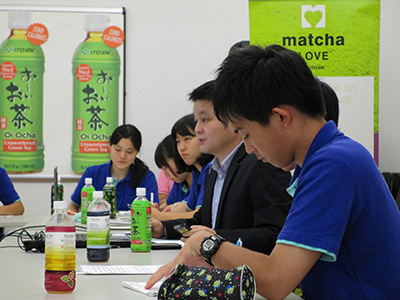
Visit to ITO EN (North America) to learn about their efforts to introduce Japanese culture in the U.S.
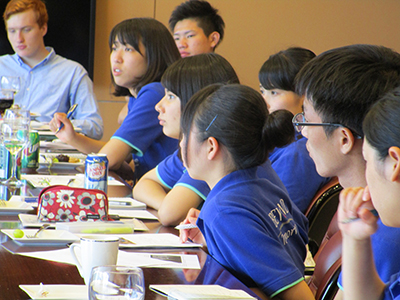
Discussion on global career with Japanese professionals working in international organizations in NY
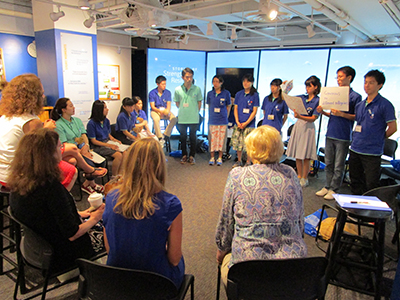
Students visited 9/11 Tribute Center and had dialogue with the 9/11 victims’ families and friends
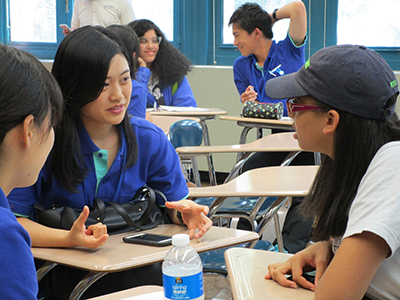
Visit to NYC Museum School and discussion with local students
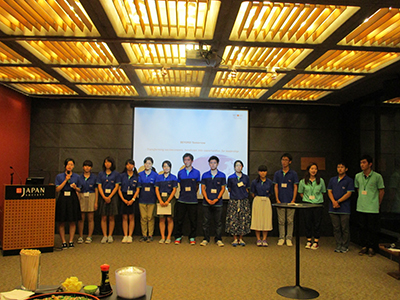
Students made presentations at the closing plenary at Japan Society
Voice of the participants
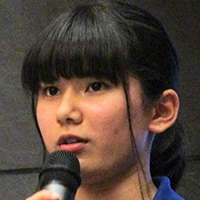
I visited the United States for the first time and my impression on the country changed. I didn’t feel racism but it was surprising to see many homeless people on the streets. I found out the issue of social gap was in need of attention. I hope to share what I saw and learned in the United States at BEYOND Tomorrow and at school.
Minako Arakawa
(Ueda High School, Nagano Prefecture)
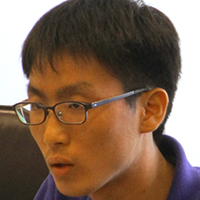
I am interested in peace education and have been engaged into the project to support the storytelling of the atomic bomb survivors. It was unforgettable for me to visit the 9/11 Tribute Center and had a dialogue with families and friends of the 9/11 victims. I strongly felt the importance of continuing to tell stories and we, the young generation, have a responsibility never to repeat the tragedy.
Kaito Marukawa
(Hiroshima High School, Hiroshima Prefecture)
Supported by:

United States-Japan Foundation

Japan Society Jiro Murase Memorial Fund
